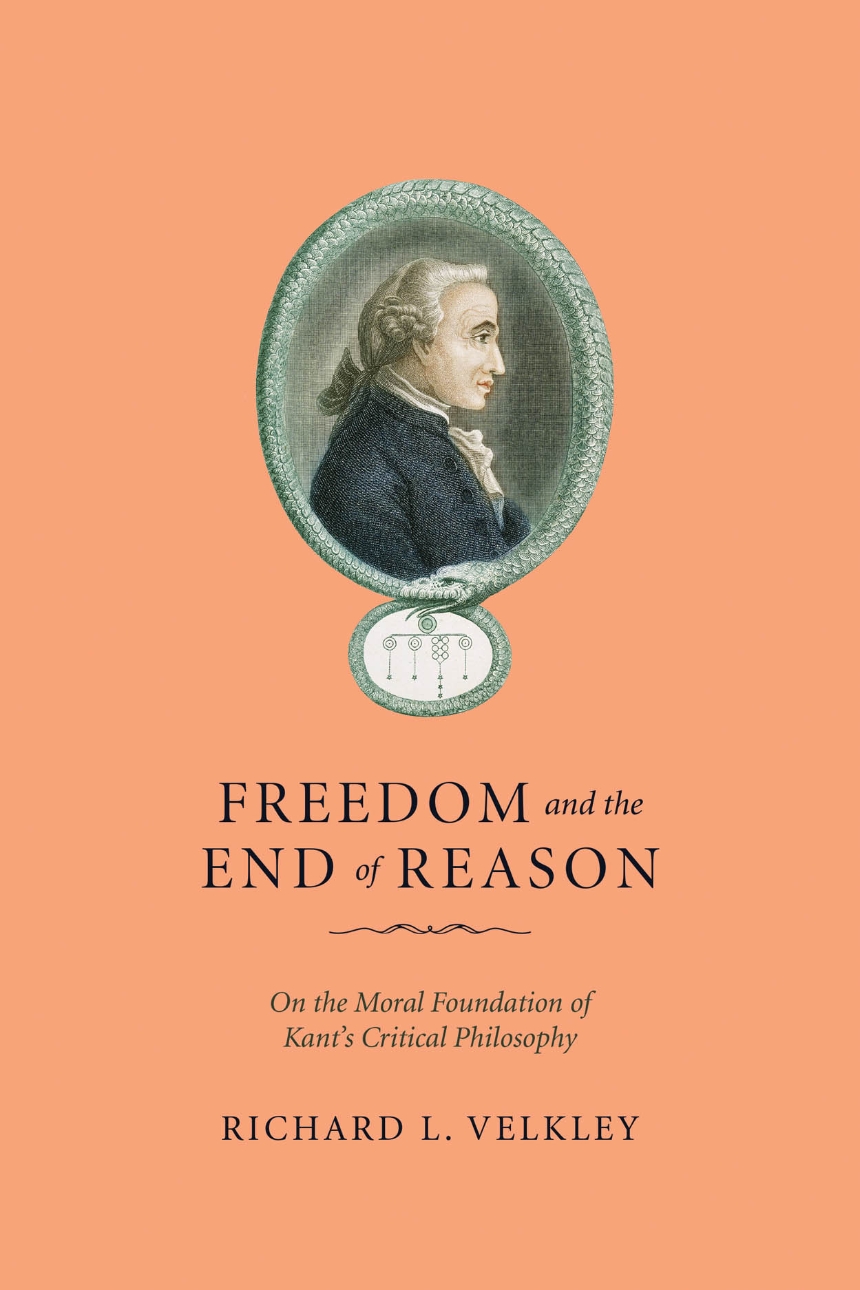Freedom and the End of Reason
On the Moral Foundation of Kant’s Critical Philosophy
9780226155173
9780226852607
9780226157580
Freedom and the End of Reason
On the Moral Foundation of Kant’s Critical Philosophy
In Freedom and the End of Reason, Richard L. Velkley offers an influential interpretation of the central issue of Kant’s philosophy and an evaluation of its position within modern philosophy’s larger history. He persuasively argues that the whole of Kantianism—not merely the Second Critique—focuses on a “critique of practical reason” and is a response to a problem that Kant saw as intrinsic to reason itself: the teleological problem of its goodness. Reconstructing the influence of Rousseau on Kant’s thought, Velkley demonstrates that the relationship between speculative philosophy and practical philosophy in Kant is far more intimate than generally has been perceived. By stressing a Rousseau-inspired notion of reason as a provider of practical ends, he is able to offer an unusually complete account of Kant’s idea of moral culture.
244 pages | 6.00 x 9.00 | © 1989
Philosophy: History and Classic Works
Political Science: Classic Political Thought
Reviews
Table of Contents
Preface
Acknowledgments
Abbreviations
Introduction
The Problem of the End of Reason in Kant’s Philosophy
The Primacy of the Practical End of Reason
Rousseau’s Insight
The Highest Good and the End of Reason
A Prospectus of the Argument
1. The Revolution in the End of Reason: Some Principal Themes
The Revision of Modern Foundations
The Critique of Instrumental Reason
The Crisis in the Relation of Metaphysics to Common Reason
Rousseau’s Protest against Modern Enlightenment
Kantian Philosophy as Transcendental Practice
2. The Teleological Problem in Modern Individualism
Individualism and Moral Sense
Rousseau’s Challenge to Moral Sense
The Teleological Problem in Rousseau
3. Kant’s Discovery of a Solution, 1764-65
History, Nature, and Perfection
Will, Reason, and Spontaneity
The Analysis of Passion: Honor and Benevolence
Justice and Equality
Common Reason and the End of Science
4. The Origins of Modern Moral Idealism, 1765-80
The Unity of Freedom and Nature as Ideal Goal
The Failures of Ancient Moral Idealism
Morality as System
Socratic Metaphysics as Science of the End and the Limit of Reason
The Dialectic of the Pure Concepts of the Whole
5. Culture and the Practical Interpretation of the End of Reason, 1781-1800
The Ultimate End of Theoretical Inquiry
Philosophy’s "Idea" and Its History
Culture’s Contradictions and Their Ideal Resolution
Epilogue
Notes
Index
Acknowledgments
Abbreviations
Introduction
The Problem of the End of Reason in Kant’s Philosophy
The Primacy of the Practical End of Reason
Rousseau’s Insight
The Highest Good and the End of Reason
A Prospectus of the Argument
1. The Revolution in the End of Reason: Some Principal Themes
The Revision of Modern Foundations
The Critique of Instrumental Reason
The Crisis in the Relation of Metaphysics to Common Reason
Rousseau’s Protest against Modern Enlightenment
Kantian Philosophy as Transcendental Practice
2. The Teleological Problem in Modern Individualism
Individualism and Moral Sense
Rousseau’s Challenge to Moral Sense
The Teleological Problem in Rousseau
3. Kant’s Discovery of a Solution, 1764-65
History, Nature, and Perfection
Will, Reason, and Spontaneity
The Analysis of Passion: Honor and Benevolence
Justice and Equality
Common Reason and the End of Science
4. The Origins of Modern Moral Idealism, 1765-80
The Unity of Freedom and Nature as Ideal Goal
The Failures of Ancient Moral Idealism
Morality as System
Socratic Metaphysics as Science of the End and the Limit of Reason
The Dialectic of the Pure Concepts of the Whole
5. Culture and the Practical Interpretation of the End of Reason, 1781-1800
The Ultimate End of Theoretical Inquiry
Philosophy’s "Idea" and Its History
Culture’s Contradictions and Their Ideal Resolution
Epilogue
Notes
Index
